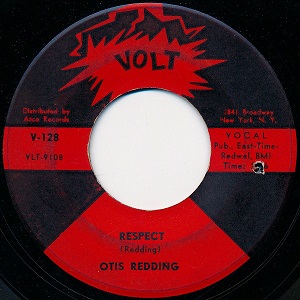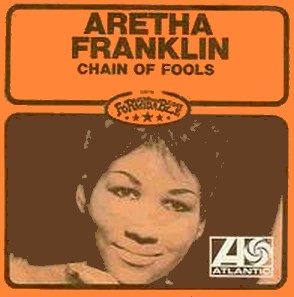
Soul music is a popular music genre that originated in the African-American community throughout the United States in the late 1950s and early 1960s. It has its roots in African-American gospel music and rhythm and blues. Soul music became popular for dancing and listening, where U.S. record labels such as Motown, Atlantic and Stax were influential during the Civil Rights Movement. Soul also became popular around the world, directly influencing rock music and the music of Africa. It also had a resurgence in the mid-to late 1990s with the subgenre neo-soul, which added modern production elements and influence from hip-hop.

Wilson Pickett was an American singer and songwriter.

Booker T. & the M.G.'s were an American instrumental, R&B, and funk band formed in Memphis, Tennessee, in 1962. The band is considered influential in shaping the sound of Southern soul and Memphis soul. The original members of the group were Booker T. Jones, Steve Cropper (guitar), Lewie Steinberg (bass), and Al Jackson Jr. (drums). In the 1960s, as members of the Mar-Keys, the rotating slate of musicians that served as the house band of Stax Records, they played on hundreds of recordings by artists including Wilson Pickett, Otis Redding, Bill Withers, Sam & Dave, Carla Thomas, Rufus Thomas, Johnnie Taylor, and Albert King. They also released instrumental records under their own name, including the 1962 hit single "Green Onions". As originators of the unique Stax sound, the group was one of the most prolific, respected, and imitated of its era.

Sam & Dave were an American soul and R&B duo who performed together from 1961 until 1981. The tenor (higher) voice was Sam Moore and the baritone/tenor (lower) voice was Dave Prater (1937–1988).

Arthur Alexander was an American country-soul songwriter and singer. Jason Ankeny, music critic for AllMusic, said Alexander was a "country-soul pioneer" and that, though largely unknown, "his music is the stuff of genius, a poignant and deeply intimate body of work on par with the best of his contemporaries." Alexander's songs were covered by such stars as the Beatles, the Rolling Stones, Bob Dylan, Gerry and the Pacemakers, Otis Redding, Tina Turner, Pearl Jam, and Jerry Lee Lewis.
Alabama has played a central role in the development of both blues and country music. Appalachian folk music, fiddle music, gospel, spirituals, and polka have had local scenes in parts of Alabama. The Tuskegee Institute's School of Music, especially the Tuskegee Choir, is an internationally renowned institution. There are three major modern orchestras, the Mobile Symphony, the Alabama Symphony Orchestra and the Huntsville Symphony Orchestra; the last is the oldest continuously operating professional orchestra in the state, giving its first performance in 1955.

Steven Lee Cropper, sometimes known as "The Colonel", is an American guitarist, songwriter and record producer. He is the guitarist of the Stax Records house band, Booker T. & the M.G.'s, which backed artists such as Otis Redding, Wilson Pickett, Sam & Dave, Carla Thomas, Rufus Thomas and Johnnie Taylor. He also acted as the producer of many of these records. He was later a member of the Blues Brothers band. Rolling Stone magazine ranked him 36th on its list of the 100 greatest guitarists of all time, while he has won two Grammy Awards from his seven nominations.

Otis Blue/Otis Redding Sings Soul is the third studio album by American soul singer and songwriter Otis Redding. It was first released on September 15, 1965, as an LP record through the Stax Records subsidiary label Volt.

Eddie Lee Floyd is an American R&B and soul singer and songwriter, best known for his work on the Stax record label in the 1960s and 1970s, including the No. 1 R&B hit song "Knock on Wood".

"Respect" is a song written and originally recorded by American soul singer Otis Redding. It was released in 1965 as a single from his third album Otis Blue/Otis Redding Sings Soul and became a crossover hit for Redding.

"Land of a Thousand Dances" is a song written and first recorded by American rhythm and blues singer Chris Kenner in 1962. It later became a bigger hit in versions by Cannibal & the Headhunters and Wilson Pickett. A version by Thee Midniters reached number 27 in Canada on March 22, 1965.
Dan Penn is an American songwriter, singer, musician, and record producer, who co-wrote many soul hits of the 1960s, including "The Dark End of the Street" and "Do Right Woman, Do Right Man" with Chips Moman and "Cry Like a Baby" with Spooner Oldham. Penn also produced many hits, including "The Letter", by The Box Tops. He has been described as a white soul and blue-eyed soul singer. Penn has released relatively few records featuring his own vocals and musicianship, preferring the relative anonymity of songwriting and producing. Dan Penn produced an album on Ronnie Milsap in 1970 on Warner Bros.

"I've Been Loving You Too Long" (originally "I've Been Loving You Too Long (To Stop Now)") is a soul music ballad written by Otis Redding and Jerry Butler. Considered by music critics and writers to be one of Redding's finest performances and a soul classic, it is a slow, emotional piece with Redding's pleading vocals backed by producer Steve Cropper's arpeggiated guitar parts and a horn section.

"You Send Me" is a song written and originally recorded by American singer Sam Cooke, released as a single in 1957 by Keen Records. Produced by Bumps Blackwell and arranged and conducted by René Hall. The song, Cooke's debut single, was a massive commercial success, becoming a No. 1 hit on both Billboard's Rhythm & Blues Records chart and the Billboard Hot 100.
The Muscle Shoals Rhythm Section is a group of American session musicians based in the northern Alabama town of Muscle Shoals. One of the most prominent American studio house bands from the 1960s to the 1980s, these musicians, individually or as a group, have been associated with more than 500 recordings, including 75 gold and platinum hits. They were masters at creating a southern combination of R&B, soul and country music known as the "Muscle Shoals sound" to back up black artists, who were often in disbelief to learn that the studio musicians were white. Over the years from 1962 to 1969, there have been two successive groups under the name "Muscle Shoals Rhythm Section" and the common factor in the two was an association with Rick Hall at FAME Studios in Muscle Shoals.

"Chain of Fools" is a song written by Don Covay. Aretha Franklin first released the song as a single in 1967 and subsequently it appeared on many of her albums. It hit number one on the Billboard Hot Rhythm & Blues chart and number two on Billboard's Hot 100 chart.

FAME Studios is a recording studio located at 603 East Avalon Avenue in Muscle Shoals, Alabama, an area of northern Alabama known as the Shoals. Though small and distant from the main recording locations of the American music industry, FAME has produced many hit records and was instrumental in what came to be known as the Muscle Shoals sound. It was started in the 1950s by Rick Hall, known as the Founder of Muscle Shoals Music. The studio, owned by Hall until his death in 2018, is still actively operating. It was added to the Alabama Register of Landmarks and Heritage on December 15, 1997, and was listed on the National Register of Historic Places in 2016. The 2013 award-winning documentary Muscle Shoals features Rick Hall, the Muscle Shoals Rhythm Section, and the Muscle Shoals sound originally popularized by FAME.

"You Don't Miss Your Water" is a soul song and the debut single written and recorded by American singer William Bell. It was released by Stax Records in 1961. It is Bell's signature song and best known recording.

Roe Erister "Rick" Hall was an American record producer, songwriter, and musician who became known as the owner of FAME Studios in Muscle Shoals, Alabama. As the "Father of Muscle Shoals Music", he was influential in recording and promoting both country and soul music, and in helping develop the careers of such musicians as Aretha Franklin, Otis Redding, Duane Allman and Etta James.

Otis Ray Redding Jr. was an American singer and songwriter. He is regarded as one of the greatest singer-songwriters in the history of American popular music and a seminal artist in soul music and rhythm and blues. Nicknamed the "King of Soul", Redding's style of singing gained inspiration from the gospel music that preceded the genre. His singing style influenced many other soul artists of the 1960s.
















